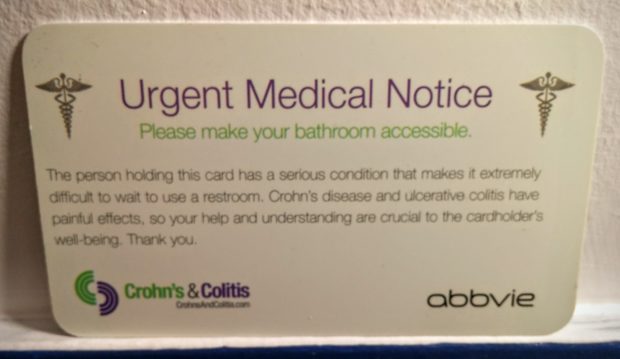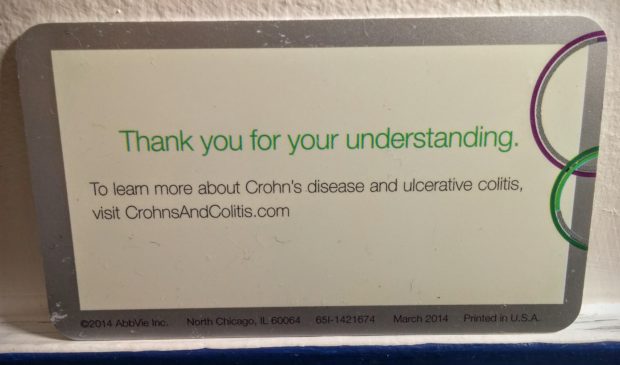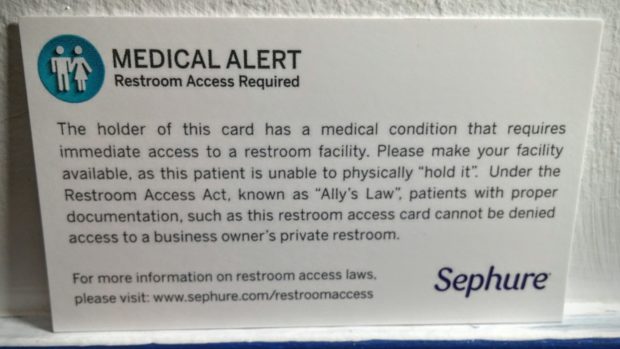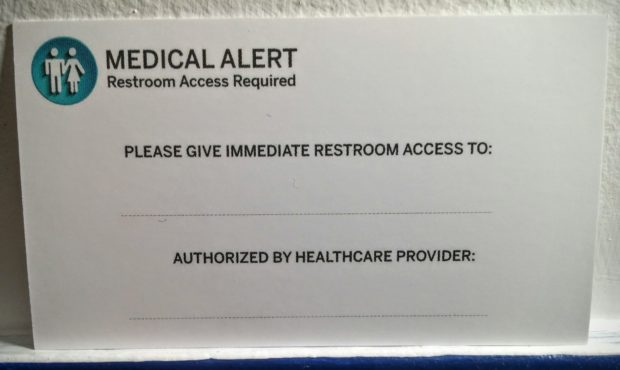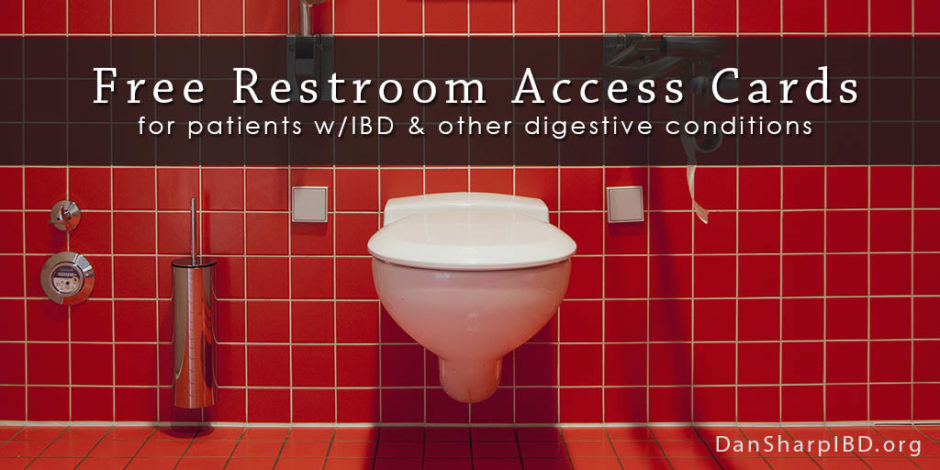
For people living with Inflammatory Bowel Disease (IBD), finding a restroom while in public can be a nerve-wracking experience. It can be difficult to find public restrooms in many places, as retail shops and other businesses often do not make their restrooms available to non-employees. Fortunately, if you live in the United States, you may have a legal right to use a business’s private or employee-only restroom. The Restroom Access Act, also known as “Ally’s Law”, has been passed in 14 states (Colorado, Connecticut, Illinois, Kentucky, Maine, Massachusetts, Michigan, Minnesota, Ohio, Oregon, Tennessee, Texas, Wisconsin, and Washington) and efforts are being made to pass similar laws in others. 1https://www.verywell.com/the-restroom-access-act-1942432 Check out the links at the bottom of this article to learn more about Ally’s Law.
Whether or not you live in a state where a Restroom Access Act has passed, a Medical Alert / Restroom Access Card is an extremely useful resource for IBD patients to have. 2http://www.inflamed-and-untamed.com/post/112225587319/should-you-carry-a-medical-alert-card They can help you advocate for yourself when you are in dire need of restroom access, or when you need other accommodations or special assistance, such as when traveling. 3http://www.inflamed-and-untamed.com/post/112225587319/should-you-carry-a-medical-alert-card
While there are a number of options for patients in need of a Medical Alert / Restroom Access card, the following two are not only effective, they are extremely easy to acquire, and they are free.
Abbvie (CrohnsAndColitis.com)
About the card: CrohnsAndColitis.com is an informational resource site for IBD, created by the pharmaceutical company Abbvie. Patients with IBD can easily request a free restroom access card, which will come accompanied by various informational material (mostly to do with Humira, the biologic IBD medication that Abbvie produces). The card is plastic and durable, but thinner than a credit card, which makes it easy to fit into any wallet, purse, or pocket.
Where to get it: https://www.crohnsandcolitis.com/
What the card looks like:
Sephure
UPDATE: This card does not appear to be offered anymore.
About the card: Sephure is a company that makes suppository applicators. The applicator was invented by Jennifer Davagian, who lives with Crohn’s disease and IBS. Her invention is designed to enable patients to “quickly, hygienically and comfortably administer rectal suppositories”. In addition to producing these suppository applicators, Sephure also offers free restroom access cards for patients with digestive disorders. The card is printed on business card stock, so it is not as durable as the Abbvie card, but you can always have it laminated once you receive it. A nice feature of this card, which helps explain the card stock its printed on, is the space on the back for your name and for your physician (or other qualified clinician) to sign, which adds an extra level of credibility.
Where to get it: https://sephure.com/restroom-access-card/
What the card looks like:
For More Information
For more information about Medical Alert Cards for IBD (and other digestive conditions), and their value and importance to patients, check out this article by Sara Ringer of Inflamed and Untamed: http://www.inflamed-and-untamed.com/post/112225587319/should-you-carry-a-medical-alert-card
For an example of a state’s specific Restroom Access Act, here is Illinois’: http://www.ilga.gov/legislation/ilcs/ilcs3.asp?ActID=2726&ChapterID=35
References



